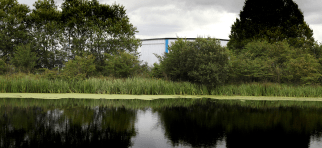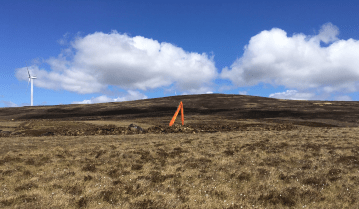Interview with Contaminated Land Specialist – Assessing Pollution in the Water Environment
12th October 2021 - Written by Cody Izatt

The water environment is particularly vulnerable to pollution from industrial sites and brownfield developments. Suzanne Lindsay catches up with our contaminated land specialist Cody Izatt about how our Contaminated Land Team can assess pollution in the water environment.
Why is protecting the water environment important to you?
I have long been fascinated by the water environment and my time working within the land development industry at Mabbett has hit home just how much the water environment has shaped, and continues to shape, the world around us. Despite the importance of groundwater and surface waters, the growth of UK industry in the 19th and 20th Centuries caused significant damage to the water environment through the release of pollutants, and the clean-up is challenging. However, the water environment is an important resource, and it benefits all of us if it is conserved and protected (not least to maintain Scotland’s brilliant tap water!)
What assessments of the water environment do you as a contaminated land specialist carry out?
I undertake desk-based assessments (Phase I) to determine the likelihood that groundwaters and surface waters are being polluted by a site, for example from contaminants sourced from an old industrial site. We consider factors such as the underlying geology, the nature of the groundwater beneath a site and the type of pollutants that may be present.
If required, I would then undertake an intrusive investigation (Phase II) to provided raw data to establish the pollution risk to the water environment. This quantitative assessment examines the nature of the water environment, whether pollutants are present, and aims to identify the source of the pollutants. Dependent on the nature of the pollutant, various phases of quantitative risk assessment may be required. If pollution is present at the site, we would outline remedial methods or mitigation measures which would help protect the water environment.
You mention that industry was historically a major polluter of the water environment. How can Mabbett help industries today help protect the water environment?
Larger industrial activities that may cause pollution to the water environment are regulated by SEPA or the EA and require a permit to operate. A baseline investigation is usually undertaken to provide soil and groundwater measurements prior to granting the permit, as part of the permit conditions throughout the lifetime of a permit, and prior to permit surrender to determine whether the industrial activities have polluted the soil and water environment. Our Contaminated Land Team can undertake these investigations to ensure your industrial site is complying with your permit requirements.












 Previous
Previous 

